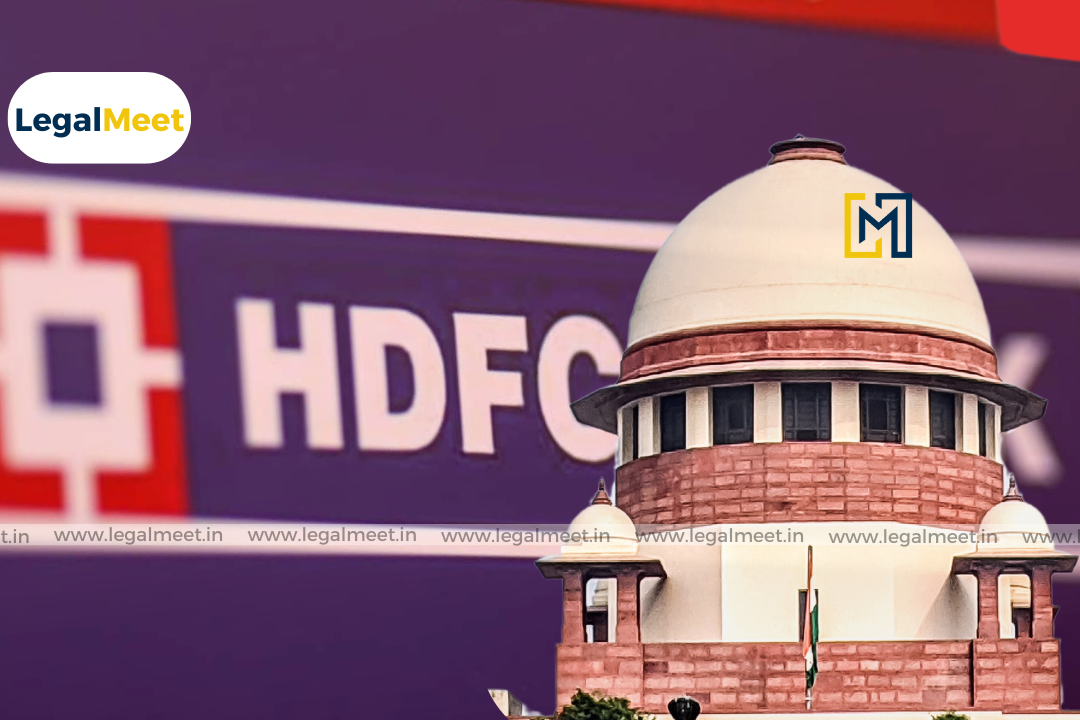
"SC Quashes FIR Against HDFC Bank & Officials: No Mens Rea in Income Tax Violation Case"
The Supreme Court today dismissed a criminal case against HDFC Bank Ltd., which had been accused of violating an Income Tax Department notice to freeze certain accounts, fixed deposits, and lockers of a tax assessee. A bench of Justices BR Gavai and KV Viswanathan overturned a previous High Court decision that had refused to cancel the case against HDFC Bank officials. The bank was accused of allowing a customer to access their locker, even though the Income Tax Department had specifically ordered them not to. In this case, the IT Department issued notice to the Appellant/Bank under Section 132 (3) of the Income Tax Act, 1961 to stop the operation of the assesses bank account, fixed deposits, and locker. Later on, the department allowed the assesses to operate the bank account but maintained the status quo on the operation of fixed deposit and bank locker. The allegations against the appellant/bank officials were that they had violated the notice issued by the department by allowing the assessee to operate the bank locker. Resultantly, the FIR was registered against them under Sections 34, 37, 120B, 201, 206, 217, 406, 409, 420 and 462 of the Indian Penal Code, 1860. Senior Advocate Neeraj Kishan Kaul appearing for the appellant/bank contended that the FIR should be quashed because if the FIR was taken at face value it doesn't disclose the commission of a cognizable offence. Moreover, the FIR failed to show any mens rea of the officials of the appellant-bank for committing aforesaid offences. Per contra, Advocate Manish Kumar appearing for the respondents justified the High Court's decision to not quash the FIR. He argued that the High Court while exercising powers under Section 482 Cr.P.C. cannot conduct a mini-trial to ascertain the allegations labeled against the Appellant-Bank, which can be better decided in the full-fledged trial before the trial court. Finding force in the Appellant's contention, the judgment authored by Justice Gavai pointed out that the essential ingredients of the provisions of aforesaid offences were not met out to book the appellant/bank for the said offences. The court ruled that since the appellant-bank is a legal entity (juristic person), the question of "mens rea" (criminal intent) does not apply. After reviewing the First Information Report (FIR) and complaint, the court found no evidence showing that the bank or its staff had dishonestly deceived anyone into handing over property, meaning the requirements for the offence under Section 420 of the Indian Penal Code (IPC) were not met. For the charge of criminal breach of trust under Section 409 IPC, the court explained that it would need to be proven that someone was entrusted with property and then dishonestly misused or misappropriated it. Since no such entrustment occurred with the bank, Section 462 IPC also did not apply. Similarly, offences under Sections 206, 217, and 201 IPC require mens rea (criminal intent), which was not present in this case. The FIR and complaint did not show that the bank or its officers acted with any shared intent or intentionally participated in any wrongdoing. Therefore, Sections 34, 37, and 120B IPC were also not relevant. Referring to the Bhajan Lal v. State of Haryana case, the court concluded that the FIR should be dismissed because the allegations and evidence did not prove any offence. As a result, the FIR against certain officials of the appellant-bank, filed in 2021, was quashed and set aside. Accordingly, the appeal was allowed. Case: HDFC BANK LTD. VERSUS THE STATE OF BIHAR & ORS. www.legalmeet.in
